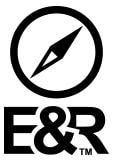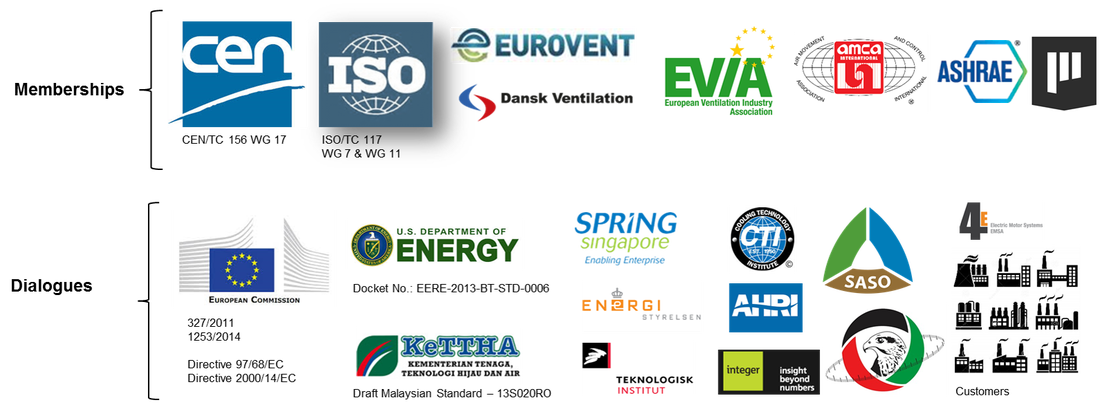Navigating Policy and Innovation: Multi-Wing's Proactive Influence on Global Ecodesign Standards
Shaping Industry Futures: From Compliance to Advocacy in Ecodesign Regulation.
Situation and Challenge:
In 2011, the fan industry faced a largely unregulated market. Aware of the forthcoming ecodesign regulation's impact set to commence in 2013, I spearheaded Multi-Wing's mission to not only comprehend the new directives but to influence their formation. The looming regulation presented significant challenges and potential disruptions to our established business practices.
Approach and Solution:
To tackle this, I led a two-pronged strategy. The first step involved an intensive analysis of the regulation's language. Collaborating with a market manager from Italy, we meticulously decoded the implications for our business. This endeavor included direct conversations with the EU Policy Officer to clarify ambiguities, resulting in a clear understanding of the new requirements.
Concurrently, I ensured that Multi-Wing was at the forefront of standard-setting by securing memberships and taking on a representative role in key technical committees like CEN and ISO. This strategic positioning at the epicenter of policy development allowed us to contribute significantly to the conversations shaping the industry's future.
Outcome:
By 2013, Multi-Wing was fully prepared—not just in terms of compliance but as a guiding light for others in the industry, particularly application manufacturers who were largely unaware of the impending changes. Our expertise enabled us to extend additional advisory services to our customers, helping them adapt to the evolving regulatory framework.
Challenge 2:
Regulations are ever-evolving, and the anticipated updates to the ecodesign regulation were set to introduce substantial changes with far-reaching consequences. My proactive participation in technical committees afforded us the foresight of these changes, giving us a more than seven-year lead on market participants not involved in advocacy.
Solution:
Anticipating these changes, Multi-Wing began an early transition strategy, a move that would have been untenable if delayed until after the new regulations were published. Our advanced understanding also allowed us to act as trusted advisors for application manufacturers who would be impacted even more by the predicted updates.
Innovative Impact:
Multi-Wing's shift from a reactive to a proactive, leading role showcased our advanced approach to industry challenges. My direct dialogue with EU policy officers, coupled with paralleled efforts in the US and elsewhere, demonstrated a dedication to leading industry advancement rather than simply participating in it.
In 2011, the fan industry faced a largely unregulated market. Aware of the forthcoming ecodesign regulation's impact set to commence in 2013, I spearheaded Multi-Wing's mission to not only comprehend the new directives but to influence their formation. The looming regulation presented significant challenges and potential disruptions to our established business practices.
Approach and Solution:
To tackle this, I led a two-pronged strategy. The first step involved an intensive analysis of the regulation's language. Collaborating with a market manager from Italy, we meticulously decoded the implications for our business. This endeavor included direct conversations with the EU Policy Officer to clarify ambiguities, resulting in a clear understanding of the new requirements.
Concurrently, I ensured that Multi-Wing was at the forefront of standard-setting by securing memberships and taking on a representative role in key technical committees like CEN and ISO. This strategic positioning at the epicenter of policy development allowed us to contribute significantly to the conversations shaping the industry's future.
Outcome:
By 2013, Multi-Wing was fully prepared—not just in terms of compliance but as a guiding light for others in the industry, particularly application manufacturers who were largely unaware of the impending changes. Our expertise enabled us to extend additional advisory services to our customers, helping them adapt to the evolving regulatory framework.
Challenge 2:
Regulations are ever-evolving, and the anticipated updates to the ecodesign regulation were set to introduce substantial changes with far-reaching consequences. My proactive participation in technical committees afforded us the foresight of these changes, giving us a more than seven-year lead on market participants not involved in advocacy.
Solution:
Anticipating these changes, Multi-Wing began an early transition strategy, a move that would have been untenable if delayed until after the new regulations were published. Our advanced understanding also allowed us to act as trusted advisors for application manufacturers who would be impacted even more by the predicted updates.
Innovative Impact:
Multi-Wing's shift from a reactive to a proactive, leading role showcased our advanced approach to industry challenges. My direct dialogue with EU policy officers, coupled with paralleled efforts in the US and elsewhere, demonstrated a dedication to leading industry advancement rather than simply participating in it.
Established Leadership & Global Advocacy Initiatives
Acknowledgment to Jørgen Rosted:
|
In reflecting upon the Advocacy journey and the successes we've achieved, it is crucial to acknowledge the giants upon whose shoulders we stand. My gratitude extends to the many exceptionally talented, experienced, and dedicated individuals I've had the privilege of collaborating with through the various networks and industry relationships. Their collective knowledge and experience have been instrumental in my ability to navigate and influence the complex world of ecodesign regulations.
Among these individuals, I must pay special tribute to my mentor, Jørgen Rosted, who generously invested his time and expertise in my early career development. His guidance was the foundation upon which I built my approach to business innovation policy, emphasizing the creation of fact-based platforms for policy recommendations. Jørgen’s unique blend of traditional economic thinking with insights from ethnography, sociology, and psychology provided me with a holistic understanding of the business landscape. As the former development director of FORA, a unit renowned for its focus on innovation environments and entrepreneurship, and with an extensive history in shaping future business policy, growth, and innovation, Jørgen's influence extends far beyond his roles in various Danish ministries. His mentorship has been a truly remarkable chapter in my professional life, for which I am profoundly grateful. |











